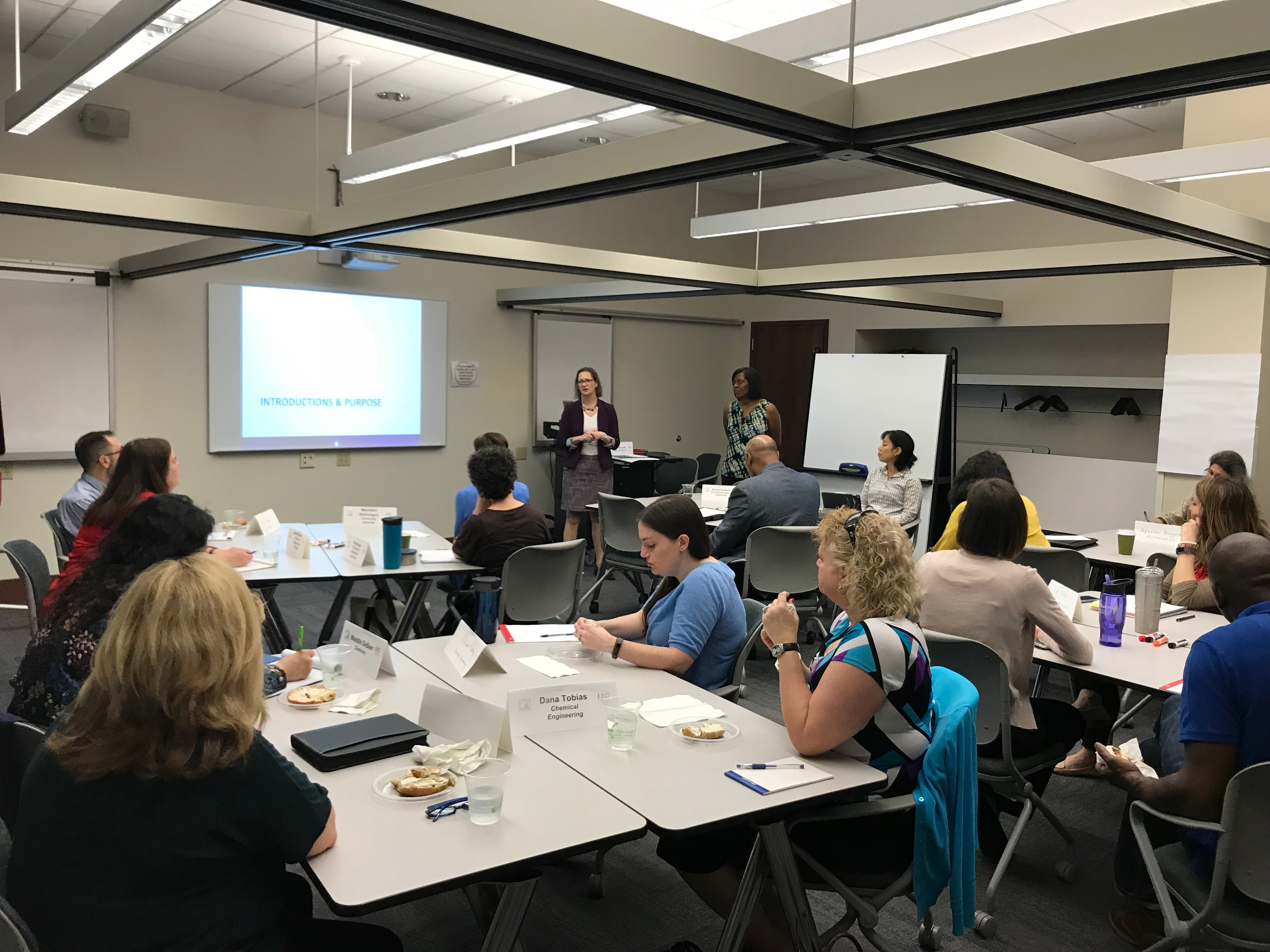LTC

Learning From Our Students
Eighteen faculty and staff gathered in May to explore how to use what students have reported about perceived bias as data to improve the climate in learning environments and learn about inclusive pedagogical methods and interventions. Amy Zavadil, Title IX/Section 504 Coordinator and Equity Compliance Officer, and LTC Faculty Development Fellows Suki Kwon (Art and Design) and Kenya Crosson (Civil and Environmental Engineering) led the interactive workshop.
Workshop participants were given a summary of the type of incidents students confidentially reported about perceived bias and examples of biased statements that some students have heard from professors, staff, and fellow students. Facilitators offered five steps for intervention, and participants discussed relevant case studies of microaggression, language privilege, learning difference, and gender bias. In case-study discussions, participants and workshop facilitators shared interventions and pedagogical approaches for possibly preventing the incident, mitigating the incident in the moment, and continuing resolution after the incident.
Examining the case studies provided opportunities to discuss approaches and practice how to handle various bias-related incidents in the moment and after the incident, and consider proactive preventive methods. Some of these approaches include:
- having the awareness to recognize a bias incident and acknowledging the incident
- creating ground rules for discussions and asking students to contribute ideas for these ground rules
- incorporating inclusive statements and expectations on syllabi and Isidore sites
- reframing and refocusing the discussion by using “I” statements (“I observe,” “I think,” “I feel,” and “I hope”)
- using inclusive examples, readings, text, problem statements, images, etc.
- individual follow-up with students involved in an incident to offer support and direction to resources
- developing awareness of the pace of your speech and lectures
- providing electronic resources and using multiple teaching methods—visual, written, oral
- developing awareness of your audience and the use of idioms, colloquialisms, and jargon
- assessing classroom climate regularly and anonymously
The workshop provided opportunities for faculty and staff to confidentially share their own experiences and learn from each other in a safe, inclusive, supportive, and non-judgmental space. The facilitators welcome invitations to join your office or unit for a tailored workshop to proactively learn and practice interventions and pedagogical approaches to create inclusive learning environments.
For more information about Diversity and Inclusion resources in the LTC, contact Susan Brown (sbrown4@udayton.edu).
